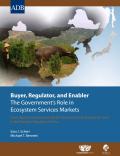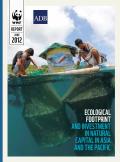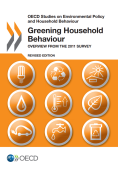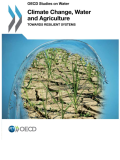

The widespread loss of natural ecosystems and biodiversity is much more than a conservation issue. Natural ecosystems provide socially and economically valuable services, such as food and fiber resources, clean water and climate regulation, that are fundamental to human welfare, but are often overlooked in decision-making processes.
Produced through a partnership between ADB and WWF International, this report provides examples of promising approaches for sustainably managing natural capital in the region. These are based on experiences from four important regional cooperation initiatives, which demonstrate the commitment of the participating governments to protecting the integrity of natural ecosystems while improving livelihoods and reducing poverty.

Developing growth strategies that promote greener lifestyles requires a good understanding of what factors affect people’s behaviour towards the environment. Recent OECD work based on periodic surveys of more than 10, 000 households across a number of countries and areas represents a breakthrough by providing a common framework to collect unique empirical evidence for better policy design.
This publication presents responses from the most recent round of the OECD survey implemented in 2011 in 5 areas (energy, food, transport, waste and water) and 11 countries: Australia, Canada, Chile, France, Israel, Japan, Korea, the Netherlands, Spain, Sweden and Switzerland.
Analysis comparing the data across countries, policy conditions and households’ characteristics reveals which measures most effectively change behaviour. Each round of the survey also allows to track changes over time and to explore new emerging issues.
This report reviews the current status of payments for watershed services (PWS) in developing countries. It highlights the main trends in the evolution of these schemes, by identifying and analyzing case profiles, constraints and information gaps in Section 2, followed by a brief overview of general trends and setbacks at the international, national and local levels. Section 4 outlines the key characteristics of PWS, namely related to supply and demand and payment mechanisms. And, Sections 5 and 6 synthesize the available evidence on the environmental and social impacts of PWS, and draw lessons for the design of future initiatives.
Free online case study resources can be downloaded from the website that accompanies this study at: www.watershedmarkets.org

Interactions between climate change, water and agriculture are numerous, complex and region-specific. Climate change can affect water resources through several dimensions: changes in the amount and patterns of precipitation; impact on water quality through changes in runoff, river flows, retention and thus loading of nutrients; and through extreme events such as floods and droughts. These changes in the water cycle can in turn deeply affect agricultural production in practically all regions of the world and have destabilising impacts for agricultural markets, food security and non-agricultural water uses. There is thus a strong case for considering agricultural water management and policy in the context of climate change. In the same way, a sound analysis of mitigation and adaptation strategies in the agricultural sector to climate change should place more emphasis on the water cycle.
